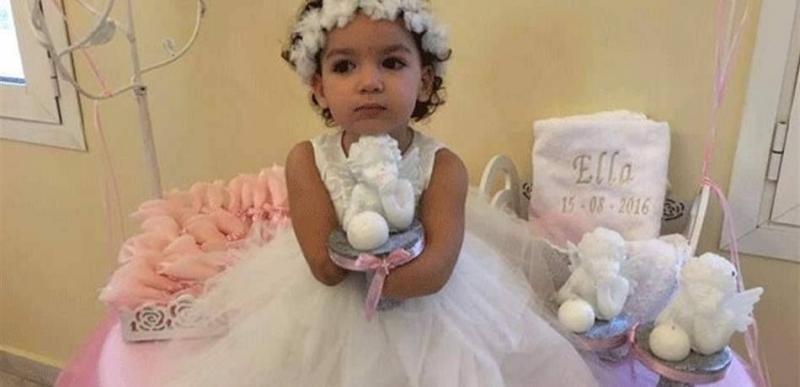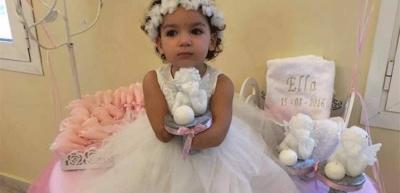Doctors in Lebanon began a warning strike on Monday in protest of a ruling issued in Beirut regarding the case of seven-year-old Ella Tannous, who had all four of her limbs amputated due to a medical error in 2015. In a move of escalation and in rejection of the ruling from the Court of Appeal in Beirut concerning Tannous, the Medical Association carried out its announced strike, which will last for a week, calling for a halt to work except for emergency cases.
On Monday afternoon, a large number of doctors from hospitals in the capital gathered in front of the Justice Palace in Beirut, accompanied by the President of the Lebanese Medical Association, Sharaf Abou Sharaf, and the President of the Private Hospitals Union, Suleiman Haroun, to condemn the "unjust ruling" against the two doctors and the hospitals involved in Tannous' case, issued by Judge Tarek Beitar.
The judgment required the American University of Beirut Medical Center and the Hospital of Our Lady of Deliverance in Jbeil, along with the doctors Issam Maalouf and Rana Charara, to pay Tannous 9 billion Lebanese Lira as compensation for damages, in addition to a monthly income for life estimated at four times the minimum wage in Lebanon. The ruling also obligated the convicted to collectively pay 500 million Lira to the child's father and another 500 million Lira to her mother for damages.
Abou Sharaf stated to Sky News Arabia: "We held this protest to show solidarity with the affected child and to clarify that the procedures taken so far, whether in terms of reports or examinations, were aimed at helping all parties reveal the truth." He added, "The bacterial infection that affected the child is a rare case and leads to 90% of either death or limb amputation. There is no doubt that the doctor was working in a rare and delicate situation, and the investigations carried out highlighted these issues from the moment the child fell ill, showing that there was a delay in diagnosis and symptoms that emerged due to a rare germ, which led to complications from the infection combined with some errors, complicating the issue."
He continued, "There is no doubt that the doctors exerted tremendous efforts to save her life, and it is sad that despite their actions, they were summoned to court and accused of corruption and crime, which is unacceptable."
The head of the medical association indicated, "We requested to contest the ruling because it represents a serious precedent for the healthcare situation in Lebanon, and on the other hand, we object to the decision at the Ministry of Justice and intend to appeal it. The matter is much larger than it appears. There are those who want to undermine the healthcare sector, and we will not stand idly by, especially since the fine imposed on the doctor is substantial."
The child's father, Hassan Tannous, expressed his perspective, stating, "Nothing can compensate for my daughter's loss of her limbs, and I hope God compensates her with a decent life." Regarding his satisfaction with the ruling, he said he was positively inclined, explaining that while the ruling was "unjust in terms of exorbitant compensations, it was also bold and represents a precedent in Lebanon by breaking the notion of not holding doctors accountable even if they err."
He noted that the committee overseeing the reports was chaired by Abou Sharaf himself and included international experts, saying, "The three hospitals we visited are at fault... and we ended up at the American University of Beirut Medical Center with my daughter’s limbs amputated."
According to a study on this rare case prepared by a graduate of the University of Saint Joseph in Beirut, Nour Yammine, she stated to Sky News Arabia: "In February 2015, Ella's temperature rose, so her mother called the doctor, who diagnosed her with a cold despite her deteriorating condition." She added, "Ella's condition continued to worsen, prompting her parents to take her to a hospital in Jbeil in northern Lebanon, where a doctor advised them the next day that she needed to be transferred to a larger hospital equipped with advanced medical devices."
She continued, "The father took her to the Hotel Dieu Hospital in Beirut, where the attending physician refused to admit the child, claiming that the primary pediatric doctor was out of the country. Ella was then transferred to the American University of Beirut Medical Center, between life and death, where the germ was diagnosed through complications that manifested as blood clots necessitating the amputation of her limbs."




